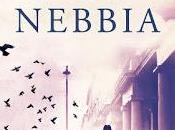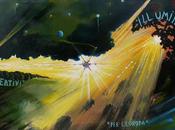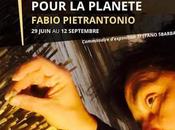 David Bellos, autore dell'ottimo libro sulla traduzione Is that a Fish in Your Ear? Translation and the Meaning of Everything, di cui ho parlato qui e di cui parlerò ancora in futuro, racconta del suo lavoro in un'intervista. Dall'introduzione si viene a sapere che Bellos "has achieved international recognition for his works as a translator and biographer": nello specifico, il Translator’s Prize (Awarded as part of the Man Booker International prize). "David Bellos is today, 22 June, announced as the sole winner of the Translator’s Prize of £15,000 awarded as part of the Man Booker International Prize. In accordance with the rules of the Man Booker International Prize, a translator (or translators) is chosen by the winner if their work is published in English". Bellos è stato nominato da Ismail Kadare.[Questo per la serie: "ma che belle idee che hanno sempre all'estero".]
David Bellos, autore dell'ottimo libro sulla traduzione Is that a Fish in Your Ear? Translation and the Meaning of Everything, di cui ho parlato qui e di cui parlerò ancora in futuro, racconta del suo lavoro in un'intervista. Dall'introduzione si viene a sapere che Bellos "has achieved international recognition for his works as a translator and biographer": nello specifico, il Translator’s Prize (Awarded as part of the Man Booker International prize). "David Bellos is today, 22 June, announced as the sole winner of the Translator’s Prize of £15,000 awarded as part of the Man Booker International Prize. In accordance with the rules of the Man Booker International Prize, a translator (or translators) is chosen by the winner if their work is published in English". Bellos è stato nominato da Ismail Kadare.[Questo per la serie: "ma che belle idee che hanno sempre all'estero".]Bellos, nell'intervista, dice fra l'altro, rispondendo alla domanda:Q: You write in your book how it is difficult to justify that poetry can ever be “lost in translation.” Why do you think readers are often quick to assume that finding an adequate translation is impossible?DB: Most people don’t even think how hard it is to translate even the simplest expression. They have no idea—and don’t want to have any idea — how much knowledge and skill is required to translate texts they prefer to think of as straightforward. But since they also find poetry difficult, poetry comes to mind as an easy example of what must be hard if not impossible to translate. That allows the kind of false generalization that I do my best to undermine in my book—that poetry is always lost in translation.
E ancora:

David Bellos
Q: In your experience as a translator, how have you seen industry standards, techniques and common practices evolve over the years?DB: I have only ever really translated books for publishers, so I have no experience of the standards and practices of the industry as a whole. In my small part of the field I am aware of a small but steady increase in the respect and attention paid to translators. Of course, that may be just an optical illusion created by the fact of my now long service to particular publishing houses. But it is a fact that translators now get their names on the covers of books (in English), and that wasn’t true 25 years ago; and they do now nearly always get a royalty as well as a fee. So I think things have improved objectively.[In Italia alcune case editrici segnalano con particolare rilievo il nome del traduttore. L'elenco lo trovate qui. In Italia i traduttori non ricevono royalty dalle case editrici.]Q: What words of wisdom can you share with translators that you wish someone would have shared with you early on in your career? DB: That there is no substitute for knowledge—finding things out is ALWAYS more fun in the end than just guessing. That there is no right translation of anything—you have to take responsibility for what you write as a translator just as you take responsibility for what you write as an author. But most of all I wish I had been given more confidence in the belief that translating is a respectable, valuable, creative and worthwhile use of a human brain. Il resto dell'intervista si trova QUI.







